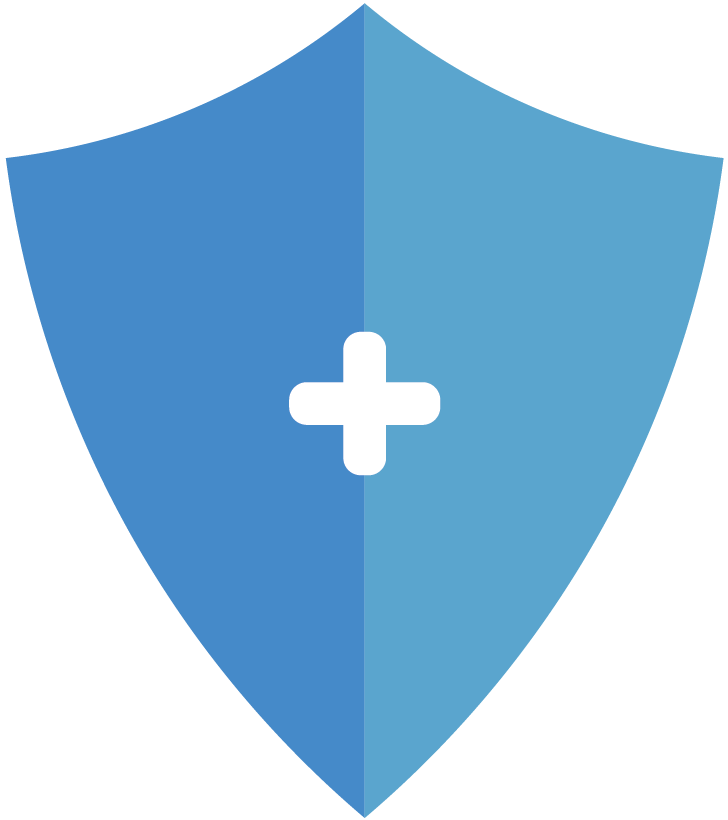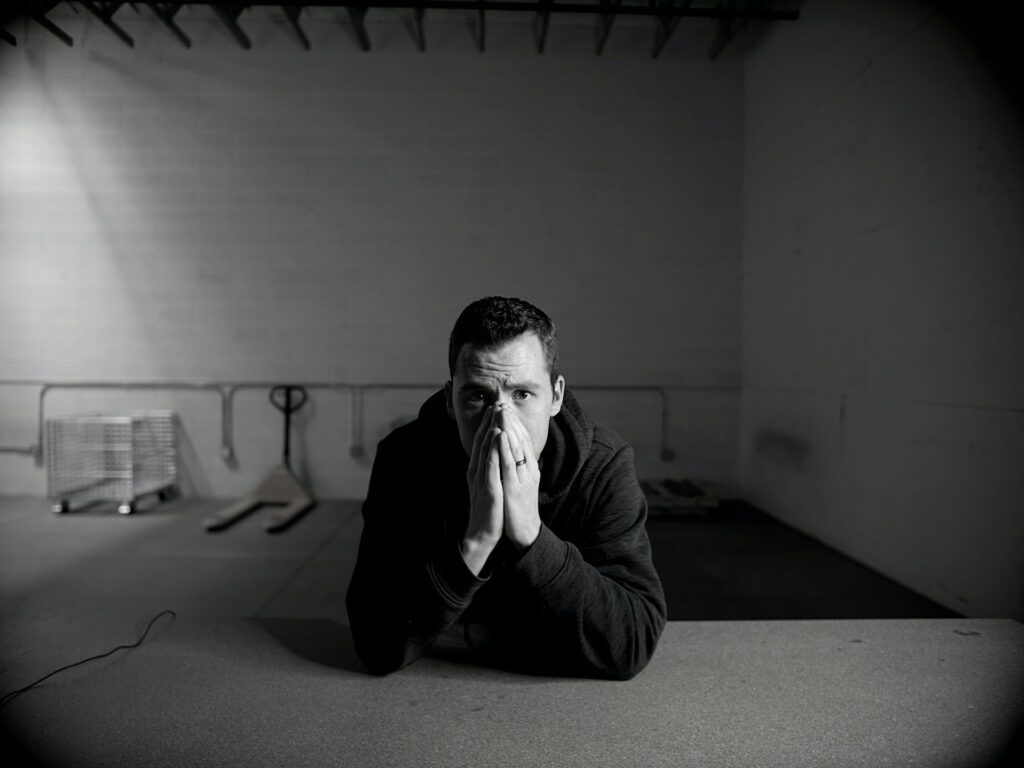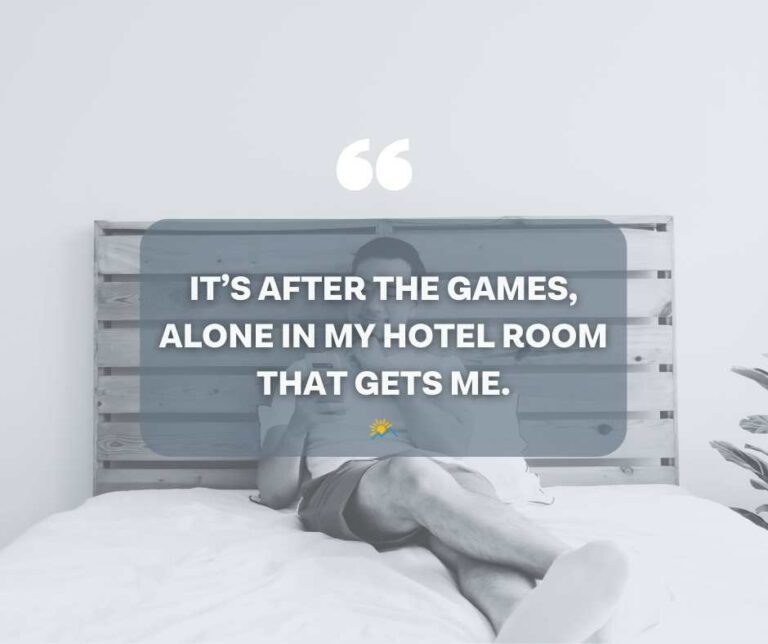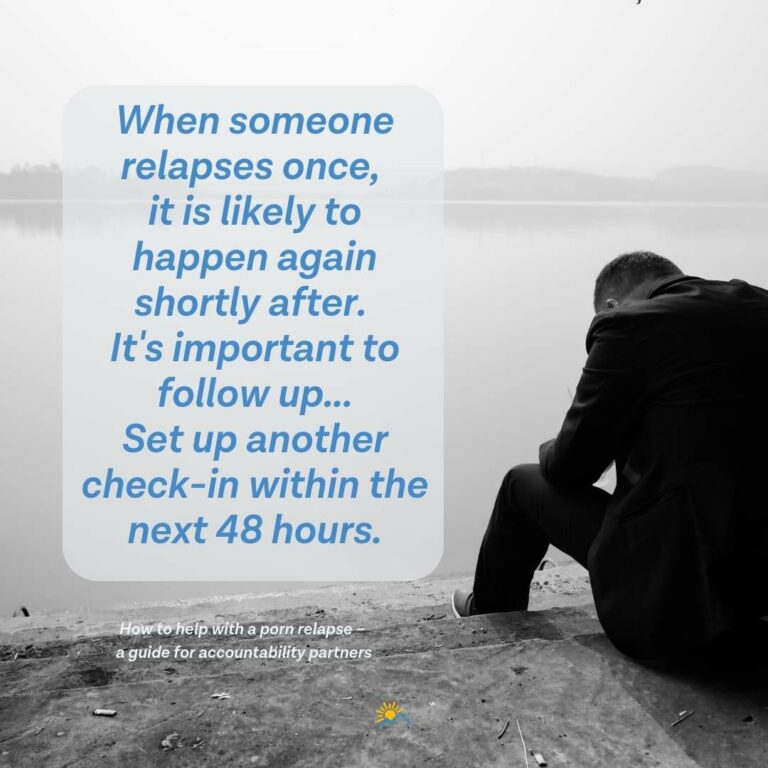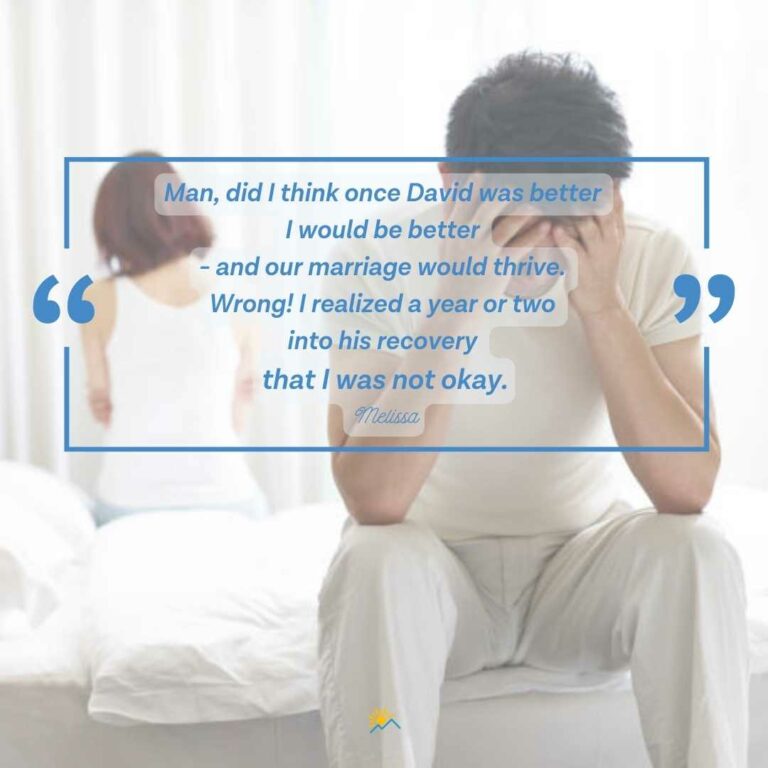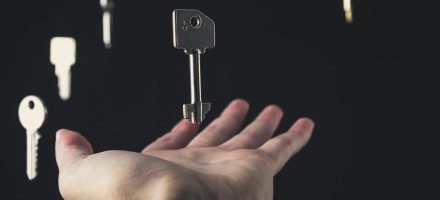Whether or not a person is actually addicted to porn is still up for debate, according to researchers. However, here’s what we can agree upon. Many people struggle desperately to completely quit porn, even if porn use has ruined their most treasured relationships.
If you are supporting a friend or loved one who desires to quit porn once and for all, recognizing this isn’t an easy journey helps.
After listening to many describe their symptoms over the years, it’s even very fair to label this challenge a porn withdrawal process.
Table of Contents
- Why some call compulsive porn use a porn addiction
- 10 normal symptoms during the porn withdrawal process
- Creating a supportive environment
- Helping someone through the porn withdrawal process – 3 practical tips
- Ways to offer emotional support
- Practice self-care as a supporter during the porn withdrawal process
- Leverage technology for support during the porn recovery journey
- Readjust your focus frequently (don’t miss this step)
Why some call compulsive porn use a porn addiction
Many symptoms during the porn withdrawal process mimic withdrawal from other addictive substances.
So, how can you help someone you care about face this challenge?
The best way is to start educating yourself on what to expect during the porn withdrawal journey.
“Addictions are complex conditions. This is because pornography and related sexual acts trigger changes in brain chemicals like dopamine. Dopamine feels good in the brain, which can cause you to repeat the addictive behavior.
While you’re doing this, your brain will attempt to maintain balance. To do this, the brain lowers the response of dopamine it normally releases. This creates a type of tolerance to the porn. ~ Eric Patterson, LPC goodrx.com
Many other therapists agree that effectively quitting porn requires a process to rewire your brain. Once you realize your friend or partner is actually facing physical and/or mental challenges due to pornography use, you’ll be able to stick the blame on porn.
“…At the same time, the brain releases more of another chemical — called dynorphin — that counteracts the pleasant effects of dopamine.
When you stop or reduce the behavior, your brain will be out of balance due to having too little dopamine and too much dynorphin. This can lead to porn addiction withdrawal.” ~ Eric Patterson, LPC goodrx.com
10 normal symptoms during the porn withdrawal process
Everyone’s journey is unique, just as our bodies are unique. For example, it’s important to know if your partner has been watching porn since childhood. Whatever a child sees repeatedly affects their brain development and reasoning processes.
Honestly evaluating their level of porn use helps each person start understanding the potential challenges of the porn withdrawal process.
Whatever your partner’s history, the following 10 symptoms include common struggles many people face in the first few weeks and even months of the porn withdrawal process.
- Irritability and mood swings
- Anxiety
- Depression
- Fatigue
- Insomnia
- Headaches
- Possible intrusive thoughts
- Intense cravings for porn
- Loss of libido/flatlining
- Isolation/social anxiety
For a more in-depth look at the process (especially “flatlining” – a symptom unique to porn withdrawal), we highly encourage both you and your partner to read and discuss the porn withdrawal process together.
Knowing what to expect and why porn withdrawal can be so difficult empowers you to fight porn as a team.
Now let’s look at practical ways you can support your partner during this process. We’ve gleaned from experts: researchers and psychologists. By reading this article, you’re already working toward the first step.
Creating a supportive environment
Seeking to understand another person’s struggle endows them with respect. Please understand that porn and shame feed loneliness and isolation. That’s why asking for help and accountability requires courage – a huge step forward into the light! So your first step in response is to create a supportive environment in the following ways:
A. Remove stigma.
You can even say, “I may not fully be able to understand your struggle, but I do understand that it’s hard. I’m here for you. I want to help you reach your goals. Let me know how I can help you.”
However, keep in mind that many people don’t know what they need at the moment. Simply acknowledge that. Then honestly say, “Can we brainstorm and figure this out together one step at a time?” (We have many helpful resources for you to explore together, too).
B. Communicate openly.
Good communication is a learned skill. That’s one of the beautiful things about accountability software. It enables you to start and practice difficult conversations with each other about porn use. Our software’s default is to send weekly reports, providing you with a regular communication touch-point. Like most areas of life, open, honest communication lubricates the wheels of change.
C. Practice self-reflection.
Right now, your partner absolutely needs someone by their side to help them succeed. To start this process, you can ask open-ended questions to encourage self-reflection, like:
- How do you think you are doing?
- What is one thing you’re proud of this week?
- Is there anything you’d like to do differently in the next week?
- Do you have a plan for facing that particular porn trigger?
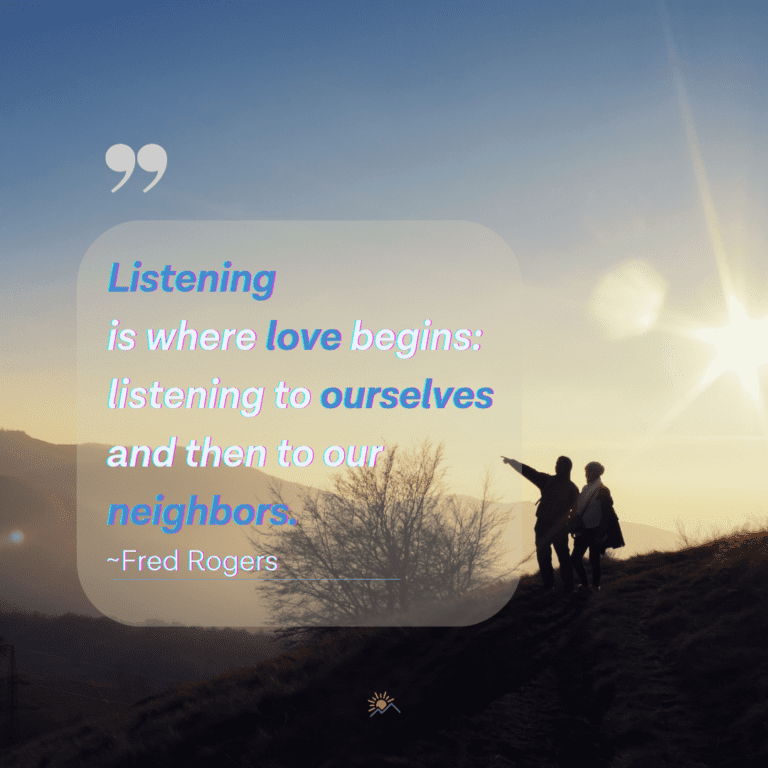
Helping someone through the porn withdrawal process - 3 practical tips
1. Encourage professional help
Books on porn written by psychologists and researchers often note a top reason for compulsive porn use is to self-soothe past traumas and depression.
Sometimes porn use is combined with an alcohol or drug addiction and serial cheating. In such cases, healing cannot occur without dealing with underlying issues, like Adverse Childhood Experiences (ACES).
“Addiction is often a symptom of deeper emotional or psychological issues, such as trauma, anxiety, or depression. By working with a therapist or counselor, individuals can gain a better understanding of these underlying issues and develop healthy coping mechanisms to manage them.” ~ allohealth.care
Therefore, trauma-informed care is important. Some online support groups also offer trauma-based group counseling in a safe environment. Seeing others face similar challenges helps your partner name their own traumas.
2. Monitor emotional well-being
Even when your partner receives professional help, you’re a beautiful source of strength and hope! Being reliably available is key.
Your role as a supporter or accountability partner is worth its weight in pure gold. Professionals never replace the kind, listening ear of a faithful friend.
“The need and desire to isolate is one of the ugliest and hardest parts of addiction. As a woman, your influence can help him change his feelings of hopelessness, anger, and anxiety. Additionally, your goal should be to help him stay connected with others close to him.” – addorecovery.com
As someone who cares, help your partner identify their everyday triggers.
The easiest trigger identification is H-A-L-T : Hungry, Angry, Lonely, and Tired! More subtle porn triggers may require an outside set of eyes besides yours.
For example, you may know that Instagram is a weak spot for your partner, and you should feel free to be truthful about this without feeling like a nag. Here’s a pro tip! Make certain that monitoring for all social media apps is enabled inside our accountability software.
3. Encourage healthy habits
Getting outside in nature regularly or even just moving your body in creative ways helps produce natural highs – a healthy coping strategy for any addiction.
Resetting one’s body to healthy dopamine highs is part of this process. Exercise also helps with insomnia – one common porn withdrawal symptom.
Eating fresh fruits and vegetables – the ones your partner enjoys – is also a positive way to promote general well-being.
Explore new hobbies and plan for healthy distractions. Maybe teens and even college students are notorious for overbooking their schedules. But it’s also possible to have a lifestyle that reflects too much solitude and isolation behind screens.
Ways to offer emotional support
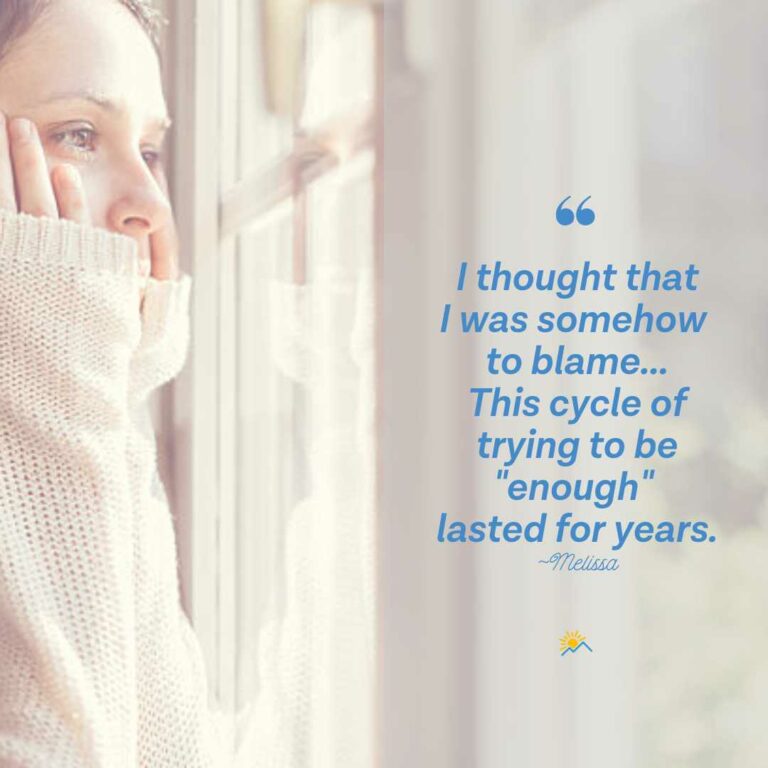
Empathetic support often takes thoughtful practice, especially if you’re a romantic partner feeling like his porn use is your fault.
When (not if) your partner slips up or feels impossible to live with, clamp down on your inner judge. Don’t harshly critique yourself or your partner.
If they’re self-reporting on their slip-up, it’s all the more reason to offer empathy and kindness. It’s hopeful sign they care about their actions!
You might say, “I feel your disappointment, but you’re making progress because you let me know about this slip. What do you think triggered you or bumped you off course emotionally today?”
Expect and prepare for slip-ups (or even a relapse)
If a slip-up has actually escalated into a longer period of porn use called a porn relapse, we have an excellent scripted guide for you.
What to say next can feel impossibly hard for you unless you have some guidance. How you respond to your partner is more important than you might think.
Focus on positive steps forward during the porn withdrawal process.
On the other hand, focusing on the positive despite the struggle promotes healing. Porn withdrawal recovery often looks like a zig-zag pathway. During the period of expected flatlining symptoms, you can purposely plan to work on intimacy without sex, for instance.
Celebrate every small win – one week without porn, a month without porn, facing triggers well, or a day of improved moods!
Your positive words of praise are “sweet to the soul and health to the bones,” according to an ancient proverb.
Patience and kindness are beautiful virtues you also develop along the way. But this doesn’t mean you should ignore your needs as a supportive partner. In fact, compassion fatigue often hits hard if you neglect yourself. (Melissa’s quote: I was NOT okay.)
Practice self-care as a supporter during the porn withdrawal process
Recognize you’re on a separate but parallel journey if you’re a spouse or romantic partner. You are not alone in your feelings of “never being enough” – as Melissa shares in her painful but hopeful story.
Like her, along the way, you may have been betrayed by being lied to repeatedly about porn use. Or, you were blindsided to discover a long-term porn habit carefully hidden from you.
Naming your feelings of betrayal and hurt are a first step. You also legitimately deserve your own support network of partners. You need people who understand, validate, and encourage you because they face the same struggles you’re enduring.
Understandably, you may be angry with your partner during porn withdrawal blues. Quite possibly both partners may need primary outside supporters and accountability.
Simply acknowledge you don’t have the bandwidth to be your partner’s solo support giver. Never fear! More resources are available than ever before.
Leverage technology for support during the porn recovery journey
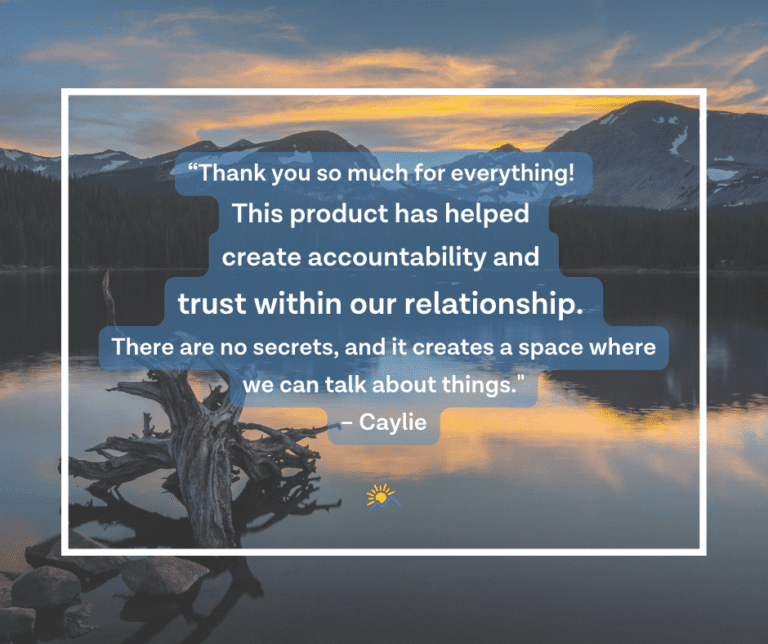
Accountability apps are often a game-changer, as more than one customer has expressed. Happily, many report improved success in achieving their goal of a porn-free life.
Often, white-knuckling and willpower won’t work! Instead, choosing good tools and connections with others help build emotional resilience and future resistance towards porn.
While your partner may feel uncomfortable about asking an outside accountability partner for help with a porn habit, it’s becoming increasingly common to do so!
Additionally, several online private communities exist to provide support while going through the process of quitting porn. Your partner can find genuine empathy from others who are also going through porn withdrawal symptoms.
Sometimes, a complete digital detox moves the needle forward toward success – as long as you have replacement activities lined up.
“Studies have found that the mere presence of a mobile device, even if you aren’t actively using it, lowers empathy levels and decreased conversation quality when interacting with other people…” ~ Kendra Cherry, MS, psychosocial rehabilitation specialist, verywellmind.com
Readjust your focus frequently (don’t miss this step)
As I teach my teen to drive, I’m reminded of how important focus and refocusing is. Our eyes miraculously perform this every few fractions of a second. And, we naturally head in the direction of where our eyes focus (which can be scary depending on the driver).
Porn withdrawal feels impossibly hard at times! Many will lose focus, fall down, and quit momentarily.
A faithful support person won’t say,“Suck it up, buttercup!”
Instead, they’ll lean in, put their forehead against yours – or text you – and kindly say, “You’ve got this. Here’s your next step. Remember how MUCH you want a life free of porn.”
Focusing and refocusing on the beautiful goal of a porn-free life is crucial. Both parties in a romantic relationship often need to readjust and take a look at the big picture.
As you practice being a safe and caring supporter, you’re performing an amazing act of world change – one precious life at a time.
Please check out our resource center for additional support. As always, feel free to reach out for an encouraging word or assistance with our accountability app at support@everaccountable.com. We’re here to help!
*Ever Accountable’s blog is not intended to be a substitute for professional advice, diagnosis, or therapy, though we often link to medically reviewed studies.
14-Day Free Trial
Protection From Pornography
Change your habits, change your life: Start our 14-day free trial to help get rid of pornography for good.
Works Cited
Cherry, Kendra. “Reasons to Do a Digital Detox.” Verywell Mind, 31 October 2023, https://www.verywellmind.com/why-and-how-to-do-a-digital-detox-4771321. Accessed 12 December 2023.
Foster, Karen. “Tips For Dealing With Porn Withdrawal When You’re Trying To Break The Habit.” BetterHelp, 12 October 2023, https://www.betterhelp.com/advice/pornography/tips-for-dealing-with-porn-withdrawal-when-youre-trying-to-break-the-habit/. Accessed 12 December 2023.
Hoffman, Kent S., and Jessica Miller. “Porn Addiction Withdrawal Symptoms: What Is Withdrawal Like?” Addiction Help, 6 November 2023, https://www.addictionhelp.com/porn/withdrawal-symptoms/. Accessed 28 December 2023.
“Neuroscience of Internet Pornography Addiction: A Review and Update.” NCBI, September 2015, https://www.ncbi.nlm.nih.gov/pmc/articles/PMC4600144/. Accessed 11 December 2023.
“Six Key Elements in Supporting a Loved One Overcome Pornography Addiction.” Addo Recovery, 13 March 2020, https://www.addorecovery.com/six-key-elements-in-supporting-a-loved-one-overcome-pornography-addiction. Accessed 12 December 2023.
14-Day Free Trial
Protection From Pornography
Change your habits, change your life: Start our 14-day free trial to help get rid of pornography for good.
